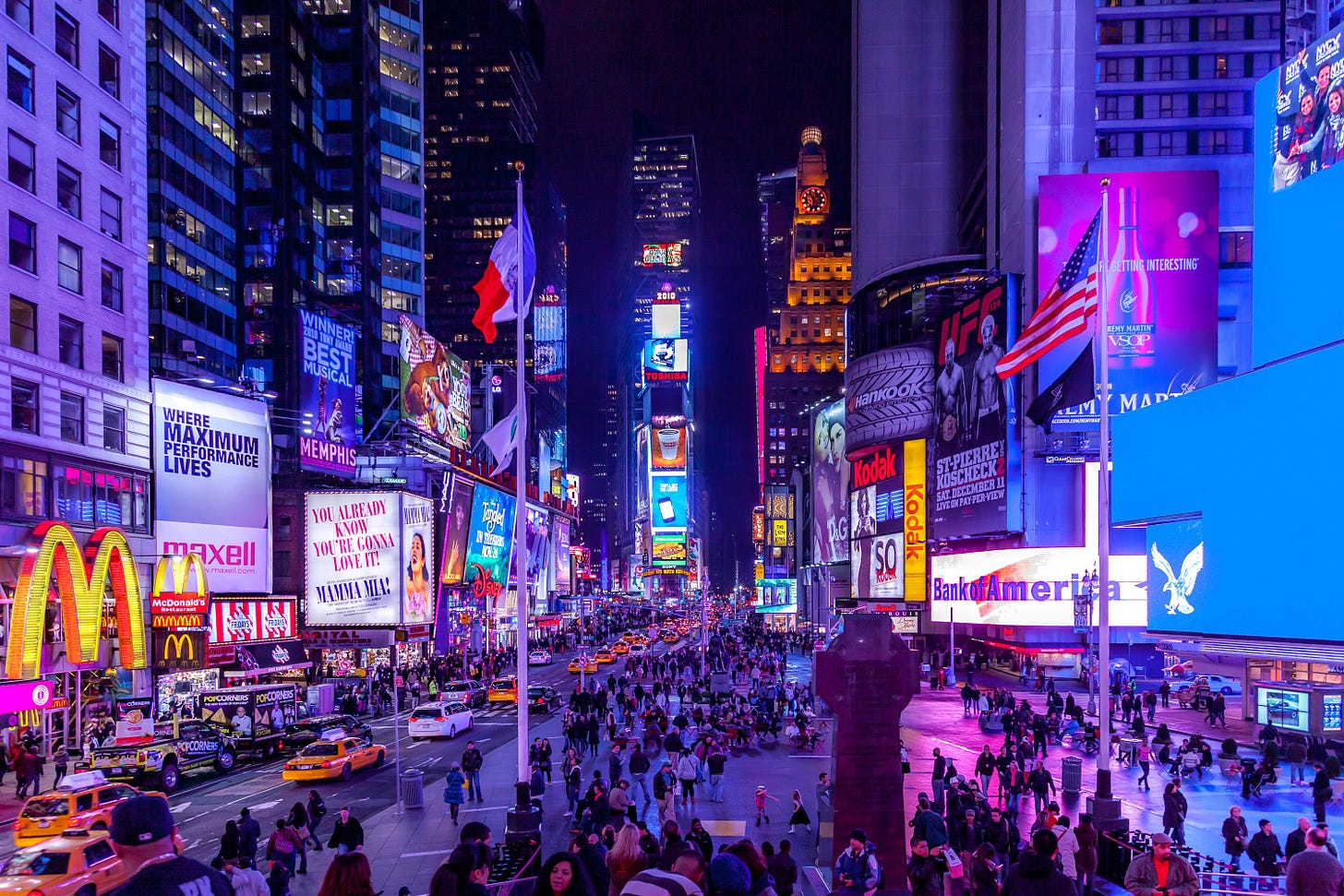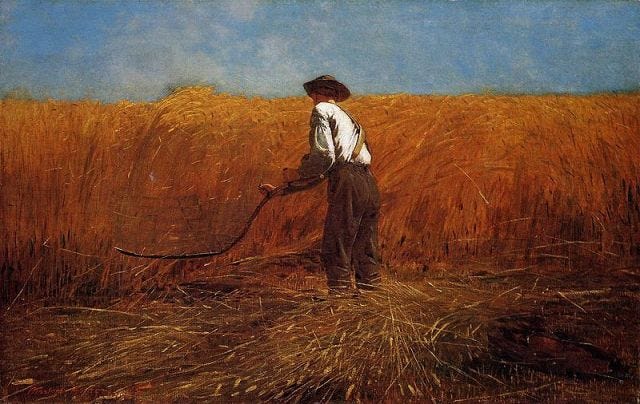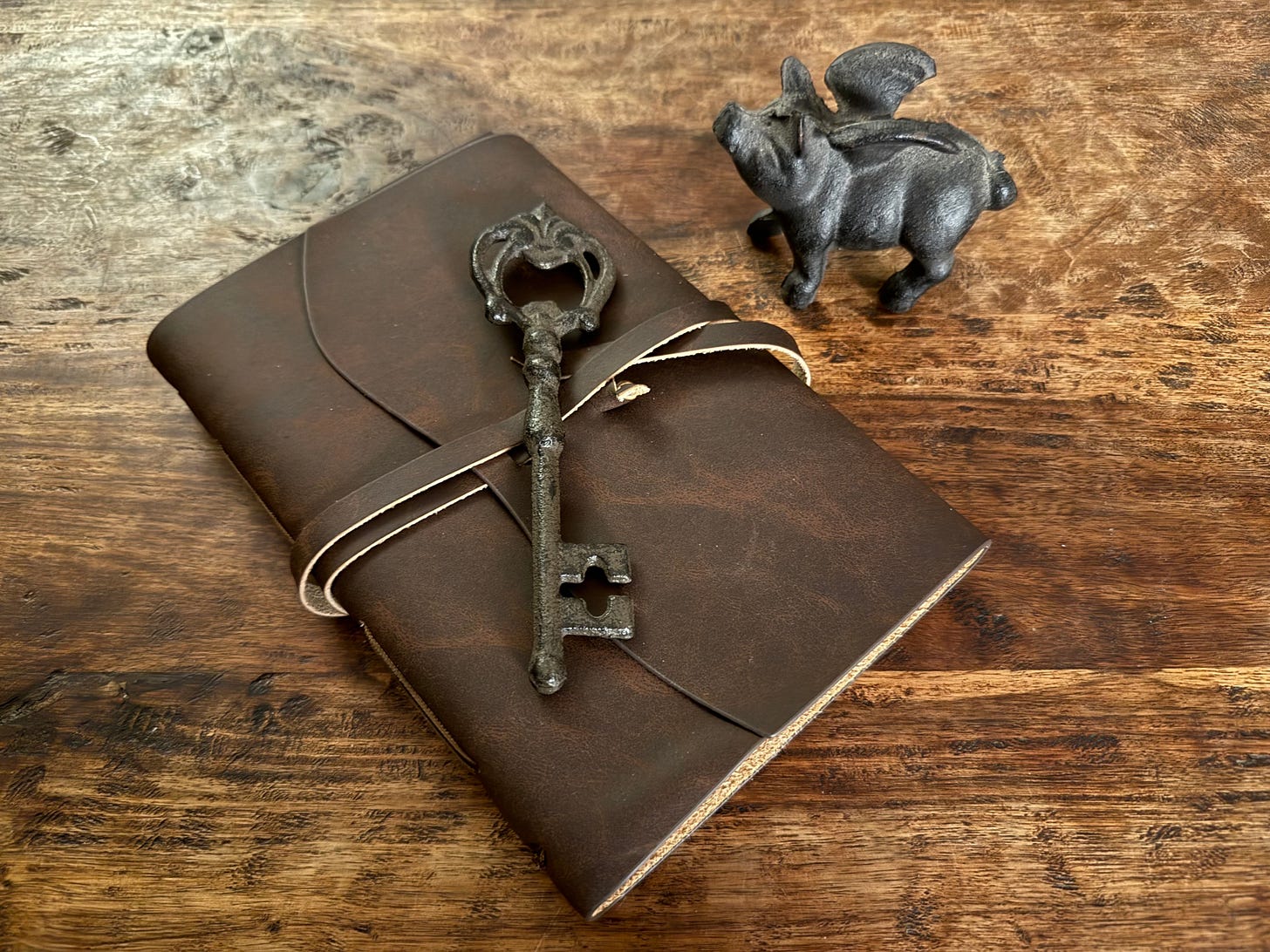They loom, the buildings. Impossibly tall and getting taller, plastered with flashing advertisements that never cease, urging, urging, urging you always to consume more. Our technology is wearable and in some cases even embedded into our very flesh. The mega corporations have outsized control, reaching for the stars while people hunt for pennies in the gutter. Simultaneously growing ever further from the good green earth and encroaching upon it, every natural boundary and border is broken down as birdsong is drowned out by booming speakers and the roar of the highways.
We are lost in a cyberpunk dystopia, a fake neon world of high tech and low life.
It is not a sci-fi fantasy anymore.
It is an open wound and it is bleeding.
We look to our screens for answers, scrying our little black mirrors. There we find the calls of influencers to “RETVRN” to a traditionalist way of life, to break free to the country, to reconnect with the natural world.
What if you can’t?
What if you are young and urban-bound, your hungry heart encased in a steel cage with blinding neon filigree? What if you are stuck in the neon wasteland at risk of forgetting the natural world and being swept away by the fetid tide of our modern culture?
What then?
You begin by reclaiming what is real.

How do we know we have entered into this cyberpunk dystopia, this nightmare warned of by authors like William Gibson, Orwell, and Bradbury? Consider first our tech saturation. Ubiquitous screens are obvious, handheld supercomputers are maligned to a cliche, and AI is very much accessible; not only do you have a little palantir in you pocket that allows you to communicate with world, it now also contains a tiny familiar with which you can have an earnest conversation and research all of human knowledge. Grok and ChatGPT are already superior to Google. How long before the inconvenience of having to pick up your phone to access these tools becomes too much to bear and people start embedding the tech in their flesh? We are already there in some cases as fringe transhumanists test the boundaries of what is possible. Social decay is another signature of cyberpunk; beneath all the chrome, wealth, and abundance there is want, desperation, and crime. You can find a new story of a corrupt politician’s scandal every hour of the day. Justice though? Seems to be the only thing in short supply. How about artificiality? Fake food, fake bodies, fake connections. A disconnect from nature, urban sprawl, social isolation, surveillance, the list of dystopian signatures scrolls ever on. If only we could escape it.
Therein lies the trap though. We make it sound so easy. Find any number of articles on this very site titled something like “How I Bought my House in the Country” and it might offer some staid tips like frugality, lowered expectations, and compromises made. The truth is though that land is expensive, rural life is out of reach for most after the mass migration to rural enclaves during the last pandemic (how’s that for a cyberpunk storyline?) and even visiting national or state parks require the time and money people simply do not have.
So what do you do? Imagine you are a young man reading Echoes from an Old Hollow Tree. You’re in your 20s, stuck in a tiny apartment surrounded by glass and steel feeling the weight of an urban world that is somehow simultaneously too loud and too empty. You dream of acreage, of the agency a little property affords you. A place to try your hand with animals, grow a garden, start a family. Maybe you’ve even got a tech job and could swing working from home. You boot up your real estate app and remember Ol’ Anderson waxing poetic about New England but…there’s just nothing there. You broaden your criteria but the grim socioeconomic reality hits: you just can’t swing it. You’re a young man in a city that’s killing you and you’re stuck.
The sad truth is that many people missed their shot. 2020 was a groundswell for property prices in the US that caused prices to explode and the traditionalist mantra of “reject modernity, return to the land” sounds noble but ignores very real barriers. It is ultimately a Romantic dream that can feel like a taunt to the powerless. Similarly, like a diet, we tell people to just detox from the artificial digital world as if it were a panacea. Yes, "unplug" or even "make something real" is good advice but it’s temporary at best. Most people can’t quit jobs tied to screens and even if a bonehead influencer tells them to make something real to fight back against the ever-creeping artificial world, the truth is that many people just do not have access to workspaces or tools. All of the advice given to people trying to escape the neon wasteland are just masturbatory fantasies, escapist entertainment. It assumes freedom of movement or resources that people just do not have. The dystopia isn’t optional. It is a cage and it is cruel advice to give.
If there is little chance of escape, if there is no cottage in the meadow awaiting you, what is to be done to survive the neon wasteland, to endure the ever-churning sewer-tide of our wounded dystopia? It is cruel to suggest buying property. It is even unreasonable to suggest mooring yourself in the artificial tide by crafting something real. A young man reading this could have little but an apartment with a cooktop. Who am I to tell him to make something when space to exist—let alone craft—comes at a premium? The reality is many may only have the space for small things.
That may be enough however.
There are small, beautiful things in our world that have been forgotten by the dystopian cyberpunk culture, that no longer have a place in our wounded neon world. They were created years ago with care but, in many ways have been forgotten. I look around my own house and find them on the mantle and on shelves. Small, beautiful, once-useful objects that may yet find purpose again.
A spool of thread. A key with no lock. A stained and creased recipe card.
A thimble. A button. A bell.
Pick up one of these tokens of yesteryear and roll it in the palm of your hand. It had a purpose once. It is gifted with form. It was crafted with care. These small forgotten objects lost in the blinding light of modernity are not unlike people. We have purpose, we are gifted with a beautiful form, we are made with care. There is a timeless, stalwart nature to the human condition that endures the capricious whims of the age. These discarded objects, knickknacks left in the back of drawers, could be picked up today and yet utilized still.
If I were the young man in the steel tower, living in a cramped studio apartment, dreaming of green while afraid of losing my mind to the neon glow of our wounded world, I know what I would do. I would try to ground myself with one of these tokens and wield it like a talisman.
An old straight blade razor, sleek and sturdy, once offered a ritual of care. A sewing needle, unnecessary now in the era of fast fashion, once used for mending and making. A cast iron paperweight in the shape of a pig, absurd but useful for anchoring to a desk your fleeting thoughts.
I would remind myself that there are timeless things that embody tradition. I would take solace in knowing they, like me, have been left behind by the culture of the age. The wounded neon world wants us to forget. It wants us to dissolve into its glow, to trade our roots for its wires. But these small things—these discarded, beautiful things—quietly say no.
They sit on your shelf, in your hand, they endure.
And so do you.
It is a cold comfort, but in a unceasing, panicked age that screams for more, in our fake modern dystopia, you can clutch your key, light your candle, ring your bell and whisper back: I am still here. I am still real.
That might be enough to keep going.








Young men who feel trapped would do well to remember that tradition does not only exists in the countryside. Returning to tradition is more about how you live than where you live.
I have repeated dreams about small communal living spaces. Ones that are edged by trees, pocketed with gardens, fringed with trails. One big kitchen, small individual spaces for a bed and a shelf of books. I remember these places in Black Mountain, NC. These are possibilities when we can get more minds to shift about how we live, the traditions we keep, the way we construct structures.